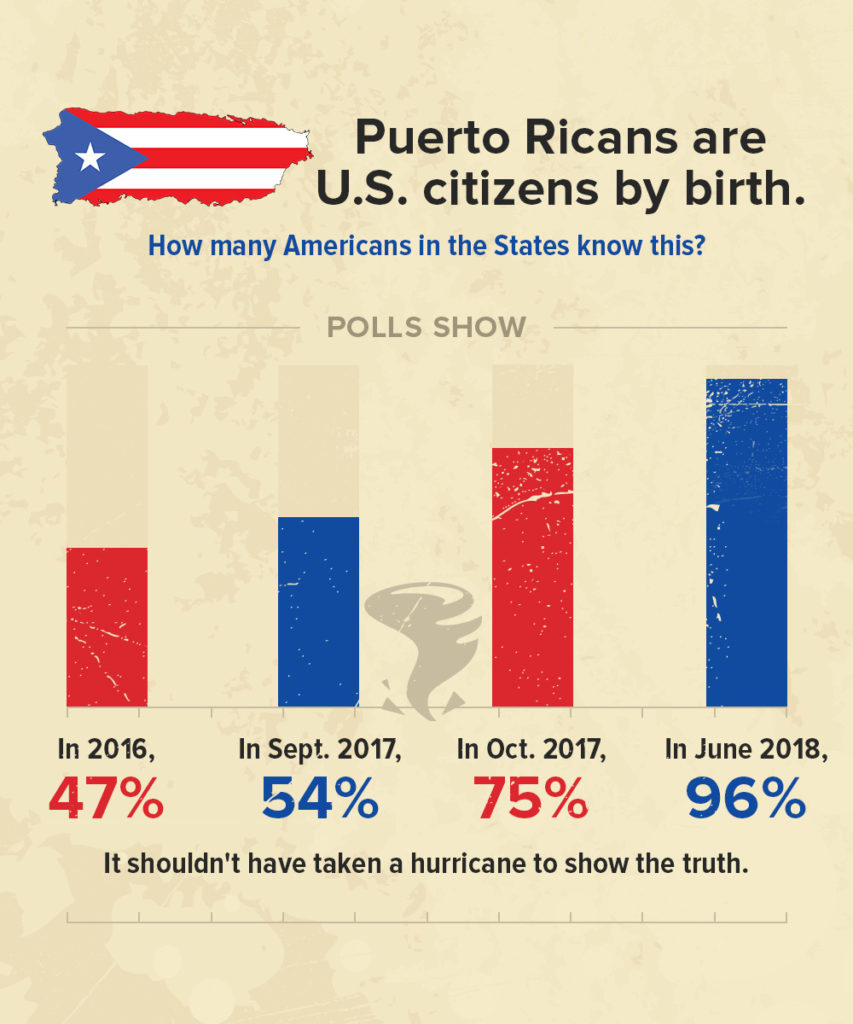As the Freedom to Vote: John R. Lewis Act struggled in the Senate, we posted a quote from John Lewis on Instagram. “Do not get lost in a sea of despair,” Lewis tweeted in 2018. “Be hopeful, be optimistic. Our struggle is not the struggle of a day, a week, a month, or a year, it is the struggle of a lifetime. Never, ever be afraid to make some noise and get in good trouble, necessary trouble.”
We think this advice is very relevant to the struggle for statehood for Puerto Rico, a human rights and civil rights issue that is bringing together people of all political persuasions.
“It’s annoying how people didn’t even bring this up,” responded the52states. “Not even the @vp or @potus. Like hello? Here in PR we can’t even vote for the president! Hello???”
We’re with you. How can it be that in a country that prides itself on democracy and wants to stand as a beacon of freedom and justice, more than three million citizens can’t vote for president?
And how can the nation debate voting rights without even mentioning this fact?
It’s worse than that
Puerto Rican voters can’t vote in presidential elections. Our soldiers and sailors can’t vote for their commander in chief. Our taxpayers, who pay some though not all federal taxes, can’t vote for their leader.
But it’s actually worse than that. Puerto Rico participates in only one national vote. In general, Puerto Rico voters choose only their local representatives.
The one exception is the Resident Commissioner. This is our one representative in Congress. Wyoming also has just one Member of the House — but he represents 515,000 people. Jenniffer Gonzalez-Colon represents more than 3,000,000 U.S. citizens. Puerto Rico should have four representatives, not just one.
What’s more, the Resident Commissioner can’t vote as a state representative can. Under some administrations, she gets to vote, but in a close contest, her vote is not counted. She has a symbolic vote and cannot affect the outcome of legislative decisions, including decisions about Puerto Rico’s status.
Gonzalez-Colon has influence and is allowed to speak up and to serve on committees, but she doesn’t have that all-important vote.
Puerto Rico doesn’t get to vote in Senate races, either, because Puerto Rico has no senators.
Puerto Rico gets to vote in local elections, for governors and mayors and territory legislators. But since Congress can overrule all local decisions in territories, Puerto Rico needs more national influence.
As it stands, the 50 states make decisions affecting Puerto Rico with little input from the Island.
So why aren’t people talking about this?
One possibility is that most people just don’t realize that Puerto Rico voters don’t get to vote in national elections. Research has shown that people who understand this and generally have more information about Puerto Rico’s situation are more likely to support statehood for Puerto Rico.
However, some people don’t realize that statehood is the solution to the problem. Washington, D.C. is also not a state, and the voters in D.C. can vote in presidential elections, thanks to a constitutional amendment. Some people figure that would be required to get the voting franchise for Puerto Rico.
In fact, statehood will give Puerto Rico representation in the Senate, full representation in the House, votes in the presidential elections, and equality with the 50 states.
And some people who may be concerned with voting rights for Puerto Rico (and this could include the president and vice president) may think that the statehood question is too complex to bring up. Speaking about voter suppression in Georgia may not lead to 100% agreement in an audience, but it also won’t lead to many people saying, “Huh? What? You’re kidding!” Most Americans now realize that people born in Puerto Rico are U.S. citizens, but there is still widespread confusion.

It’s frustrating to hear serious discussions about voting rights that ignore the disenfranchisement of Puerto Rico. But it’s also a good opportunity to bring the subject up and educate your fellow Americans, including your congressional reps.
Remember what John Lewis said: ” Never, ever be afraid to make some noise.”







No responses yet